Losers saw him as trump card
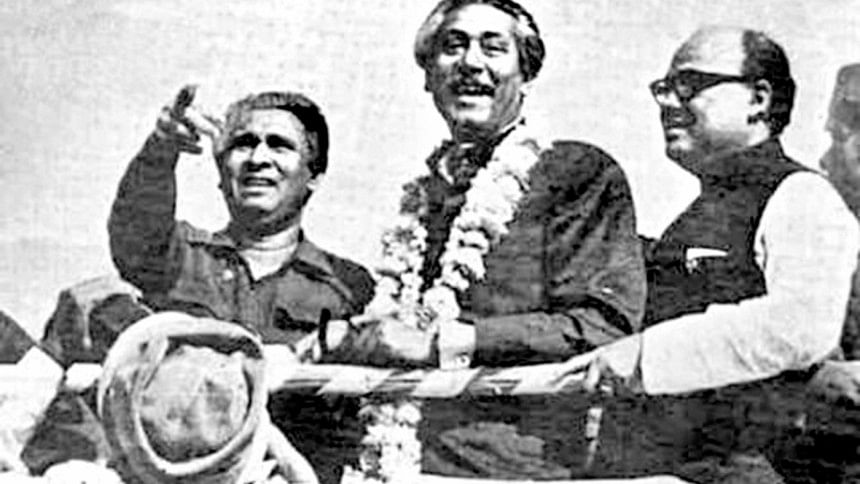
He was the jewel in the crown for the newly freed Bangladesh and the liberated, jubilant Bangalis.
For the Pakistani rulers Bangabandhu Sheikh Mujibur Rahman was the “trump card” they needed to negotiate with India and Bangladesh to hold on to power and appease the powerful military and the people after their ignominious defeat in the Liberation War in 1971.
His physical presence in newborn Bangladesh, on the other hand, was desperately needed for order and unity in the war-torn land.
People were eagerly waiting for the return of Mujib kept in a solitary confinement in West Pakistan after his arrest following the military crackdown on unarmed Bangalis on the night of March 25.
Pakistan President General Yahya Khan had wanted to use Bangabandhu as a trump card to reach a political settlement foreseeing imminent defeat in the war he had unleashed on unarmed Bangalis in 1971.
He had sketched a scenario for a political settlement through promulgation of a constitution in middle of December, convening the National Assembly on December 27 and transfer of power "several weeks" later.
In conversations with the US ambassador in Pakistan in October and early November of 1971, Yahya had told the diplomat about his contemplations, according to declassified documents of the US Department of State.
On November 15, 1971 Pakistan Foreign Secretary Sultan Khan had met Henry Kissinger, assistant to President Richard Nixon, at Washington and discussed about the political settlement.
He said there had been considerable interest in how to launch a political process which in some way involved Mujibur Rahman within the constraints limiting President Yahya.
Kissinger said he personally felt that Mujib would "be devoured by the process" in Calcutta if he were released. But as of now, he is perceived by many to be central to a solution, he said, according to a declassified memorandum of the meeting.
The US administration was willing to assist Yahya to have a political settlement. It also focused on Mujib to achieve the goals.
On October 30 the Department of State sent a telegram to Ambassador Farland asking him to elicit response from General Yahya on some crucial issues. This move was taken keeping the focus on Indira Gandhi's coming visit to the USA on November 4.
"Over all objective of your talk [with Yahya] is elicit maximum Pakistani package which can be used during talks with Mrs. Gandhi here in urging India restrain and reciprocal de-escalation," said the declassified telegram.
The US government also advised General Yahya not to allow publication of the full proceedings of Bangabandhu's trial by a military court in Pakistan.
"We understand sensitivities and only note that, right or wrong, he [Mujib] seems to have become major symbol so at minimum it would seem necessary to success any political process to avoid any step such as publishing full transcript Mujib trial which would inflame Bengali opinion," read the telegram.
Whether Yahya can use Mujib as “trump card” as he put it at some point we must leave entirely to his judgment, said the telegram.
Yahya was desperate to punish Mujib labeling him an enemy of Pakistan. The prospect of an imminent defeat helped change his mind to seek a political process with Mujib in it.
British writer and historian Robert Payne writes in his book Massacre that in July Yahya said his generals were putting pressure on him for holding trial of Mujib in military tribunal and to sentence him to death. "I am agreed with them and the trial will begin soon," Payne writes.
Yahya announced in a televised address to the nation on August 3 that Mujib would be tried.
A day before, a press note issued by the office of the chief martial law administrator announced Mujib had waged war against Pakistan and he would be tried in a military court.
The same day, on August 2, Yahya formed a military court that began trial of Mujib from August 11. The court on December 4 delivered the verdict convicting Mujib of all the charges and sentenced him to death.
Execution of the military court's verdict was subject to the approval of the chief martial law administrator, an office occupied by General Yahya himself along with the presidency.
Yahya did not get much time to use Mujib as the trump card as the situation went from bad to worse fast for his regime.
Immediately after the humiliating defeat of Pakistani army in East Pakistan, Yahya had to relinquish power to Zulfikar Ali Bhutto, who had conspired with the army to carry out the genocide, making him the president and chief martial law administrator.
Bhutto and top army generals, who deposed Yahya in a coup, now went ahead with the same plan to use Bangabandhu as a trump card to save their faces and power.
At a meeting with US Ambassador Farland, Bhutto said his key supporters had warned that the release of Mujib at that time would be tantamount to his decreeing his own imprisonment.
He anticipated that Mujib might be exchanged for the thousands of Pakistani prisoners India held following the surrender in East Pakistan, Farland informed the Department of State in a telegram on December 20.
"Bhutto has said that Mujib will be released from prison soon and put under some form of house arrest,” said Henry Kissinger in a memorandum on December 22 to President Nixon.
"This is, of course, only a gesture but it could be important for setting the tone for the dialogue that must soon ensue with the Indians and Bangla Desh leaders involving Mujib's release and the fate of the POWs and other West Pakistani in Indian custody," writes Kissinger.
Almost at every meeting with General Yahya since May 1971, Farland raised the issue of Mujib. The reason was clear. Mujib was on trial for sedition that carried death penalty.
The world leaders were also concerned for Mujib's fate in Pakistani prison.
As people across the world expressed their solidarity with the Bangladeshi people and their struggle for independence in 1971, the world media strongly demanded the release of Bangabandhu.
There was tremendous pressure on Bhutto from the army to bring the POWs back. Bhutto knew it was not possible without the unconditional release of Mujib.
After the birth of Bangladesh, even China, Pakistan's staunchest supporters during the war, wanted the release of Bangabandhu. The other superpower, Soviet Union also was for the unconditional release of Mujib.
Bhutto did not have much of an option and he moved to ensure unconditional release of Bangabandhu.
The consulate general of US embassy in Karachi met Bhutto on January 3 and discussed the release of Bangabandhu.
In a telegram to the Department of State on the meeting, the consulate general writes Bhutto said he "planned to announce today unconditional release of Sheikh Mujibur Rahman."
Bhutto also said he planned to make the announcement in a public rally in Karachi.
Time magazine (January 17, 1972), under the headline "Mujib's road from prison to power," also described how the pressure was mounting at home on Bhutto as well. It wrote: "To some Western observers, the scene stirred thoughts of Pontius Pilate deciding the fate of Jesus and Barabbas. 'Do you want Mujib freed?' shouted Bhutto at the rally of more than 100,000 supporters in Karachi.
The crowd roared its assent, as audiences often do when subjected to Bhutto's powerful oratory. Bowing his head, the president answered: ''You have relieved me of a great burden.''
On January 8, 1972, Mujib was released. Bhutto saw him off at Rawalpindi airport.
Bangabandhu left Rawalpindi airport for London to return to his people in independent Bangladesh.
Immediately after the liberation, Bangabandhu's presence in the country was desperately needed to unite his people and to lead the country.
The US Bureau of Intelligence and Research that readies 'intelligence note' for U.S. diplomacy highlighted the need for Mujib's return to his country on the day after the liberation of Bangladesh.
"In the absence of Sheikh Mujib and under the pressure of a civil war, a number of divisions appeared within the Awami League and the Bangla Desh cabinet, notably that between the then Prime Minister Tajuddin Ahmed and Foreign Minister Mushtaque Ahmed factions."
It said the struggle for Bangladesh, however, kept the party united and the differences hidden.
"Under the more intense strains of setting up a new government, the factions could split, weakening the overall influence of the Awami League. The return of Sheikh Mujib, however, would be enough to reduce the friction and reunite the factions, at least for the short term," reads the intelligence note.
Mujib's presence was urgent for many other reasons. Pakistani forces were still in Dhaka and Pakistan trained armed collaborators were still active. The government had yet to establish a firm control over the administration. Return of Indian troops from Bangladesh was also another major concern.
Mujib returned to his people on January 10 after nine months of imprisonment to receive an unprecedented welcome from a vast euphoric crowd.
"There were happy faces all around. Those who had passed through nine long months of the most horrible genocide of human history, smiled for the first time today. They have got back their beloved leader among them, they now feel confident of their future," says a report of The Statesman of India on the day of Mujib's return.
His return to his people meant the jewel in the crown is only for Bangalis.

 For all latest news, follow The Daily Star's Google News channel.
For all latest news, follow The Daily Star's Google News channel. 

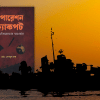
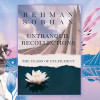
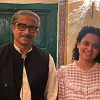

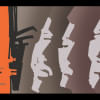


Comments